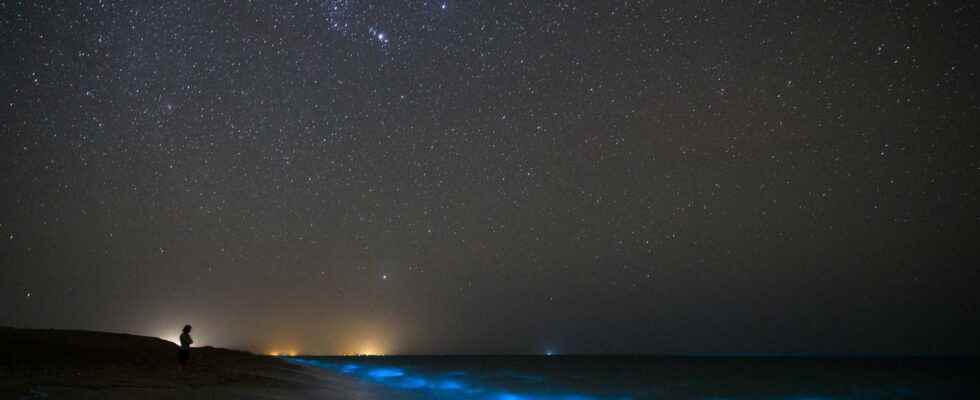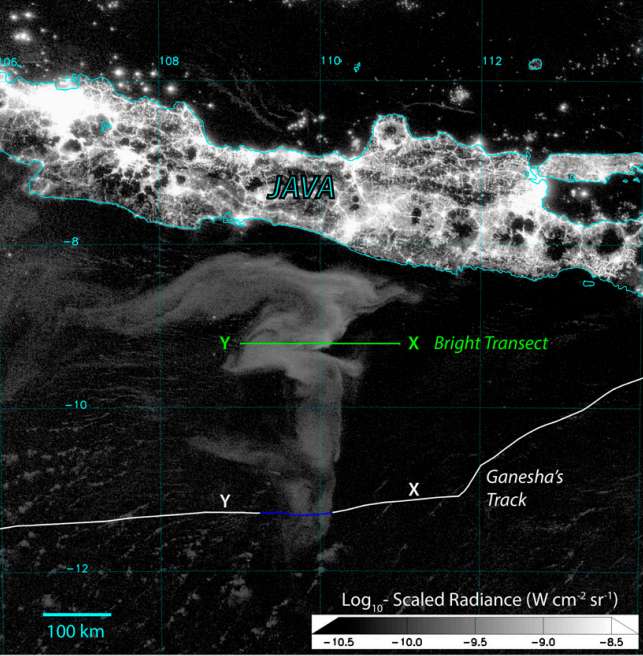In 2021, satellite image reviews revealed milky sea areas of more than 100,000 km² between July and September 2019 south of the island of Java, Indonesia. But until today, no surface observation could corroborate this phenomenon.
The ship seemed navigate the snow “. This is what the logbook of a private yacht, the Ganesha, describes. On the night of August 2, 2019, the boat crossed a bright milky sea and slightly colored, making the night sky much darker. The ship’s crew revealed a color and an intensity “similar to stars in glow-in-the-dark stickers ». Testimonies that confirm satellite observations, which revealed in 2021 views of this strange sea.
The cross-checking of these two sources was the subject of a publication in the journal PNAS, which traces the event. These milky seas are rare, and still little known. The phenomenon is caused by bacteria luminous, but the details of the composition, structure, cause and implications of the Milky Sea in nature remain largely uncertain,” describes the study. They occur a maximum of twice a year, and give the sea the appearance of a luminous snowfield.
Originally a process called “quorum sensing”
The researchers point out that “unlike the transient flashes of bioluminescence produced by phytoplankton in disturbed waters, milky seas produce a constant glow even in calm waters.” They would be due to bacteria which communicate with each other and trigger a light response when they reach a critical density population: this is the quorum detection process.
Crew members took a sample of the sea in a bucket, which did not change the milky appearance at the sampling site. “The sample contained several dots of constant glow that darkened upon shaking – a behavior opposite to that of ‘normal’ bioluminescence,” describes the study. The researchers then hope to use satellite imagery to plan express expeditions during such detections, in order to take samples and unlock the secrets of these strange seas.
Interested in what you just read?

